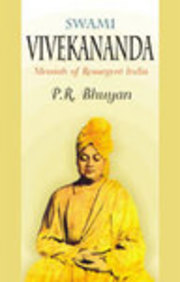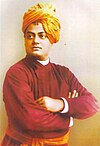
Bal Gangadhar Tilak, endeared as Lokmanya, was an Indian nationalist, teacher, and an independence activist. He was one third of the Lal Bal Pal triumvirate. The British colonial authorities called him "The father of the Indian unrest". He was also conferred with the title of "Lokmanya", which means "accepted by the people as their leader". Mahatma Gandhi called him "The Maker of Modern India".
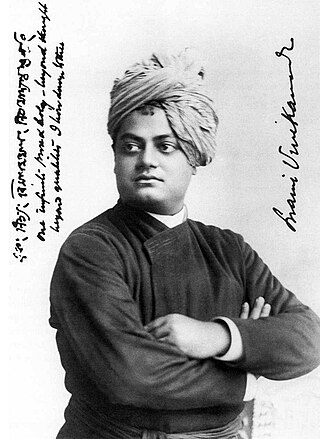
Swami Vivekananda, born Narendranath Datta, was an Indian Hindu monk, philosopher, author, religious teacher, and the chief disciple of the Indian mystic Ramakrishna. He was a key figure in the introduction of Vedanta and Yoga to the Western world, and the Father of modern Indian nationalism who is credited with raising interfaith awareness and bringing Hinduism to the status of a major world religion.

John Henry Wright was an American classical scholar born at Urumiah (Rezaieh), Persia. He earned his Bachelors (1873) and Masters (1876) at Dartmouth College, New Hampshire. After junior appointments in 1886 he joined Johns Hopkins as a professor of classical philology. In 1887, he became a professor of Greek at Harvard, where, from 1895 to 1908, he was also Dean of the Graduate School of Arts and Sciences.
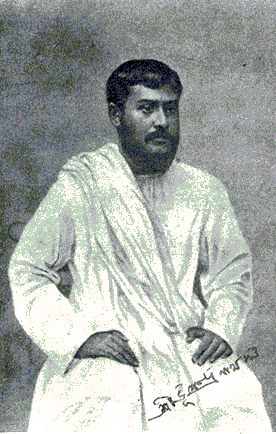
Bhupendranath Datta was an Indian communist revolutionary and later a noted sociologist and anthropologist. He associated Rishi Aurobindo in his political works. In his youth, he was closely associated with the Jugantar movement, serving as the editor of Jugantar Patrika until his arrest and imprisonment in 1907. In his later revolutionary career, he was privy to the Indo-German Conspiracy. His elder brother was Swami Vivekananda. The Asiatic Society today holds the Dr. Bhupendranath Datta memorial lecture in his honour.
Pavhari Baba (1798–1898) was a Hindu ascetic and saint. He was born in Premapur, Jaunpur in a Brahmin family. In his childhood he went to Ghazipur to study under the tutelage of his uncle who was a follower of Ramanuja or Shri sect. After finishing his studies he travelled to many places. At Girnar in Kathiawar he was initiated into Yoga.

Swami Vivekananda was a Hindu monk from India. His teachings and philosophy are a reinterpretation and synthesis of various strands of Hindu thought, most notably classical yoga and (Advaita) Vedanta, with western esotericism and Universalism. He blended religion with nationalism, and applied this reinterpretation to various aspect's of education, faith, character building as well as social issues pertaining to India. His influence extended also to the west, and he was instrumental in introducing Yoga to the west.

An Indian Study of Love and Death (1908) is a book written by Sister Nivedita.
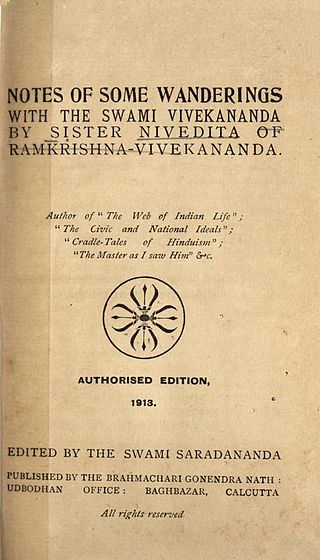
Notes of Some Wanderings with the Swami Vivekananda (1913) is an English-language book written by Sister Nivedita. In this book Nivedita has narrated the experiences she had while traveling with Swami Vivekananda in different parts of India.

Swami Vivekananda represented India and Hinduism at the Parliament of the World's Religions (1893). India Celebrates National youth day on birth anniversary of the Great Swami. This was the first World's Parliament of Religions, and it was held from 11 to 27 September 1893. Delegates from all over the world joined this Parliament. In 2012 a three-day world conference was organized to commemorate 150th birth anniversary of Vivekananda.
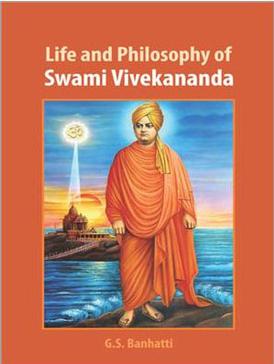
Life and Philosophy of Swami Vivekananda (1989) is an English book written by G. S Banhatti. This is a biography of Swami Vivekananda. The books were published by Atlantic Publishers & Dist, New Delhi.

Neo-Vedanta, also called Hindu modernism, neo-Hinduism, Global Hinduism and Hindu Universalism, are terms to characterize interpretations of Hinduism that developed in the 19th century. The term "Neo-Vedanta" was coined by German Indologist Paul Hacker, in a pejorative way, to distinguish modern developments from "traditional" Advaita Vedanta.

My Master is an English book combined from two lectures delivered by Swami Vivekananda in New York and England, published in 1901.
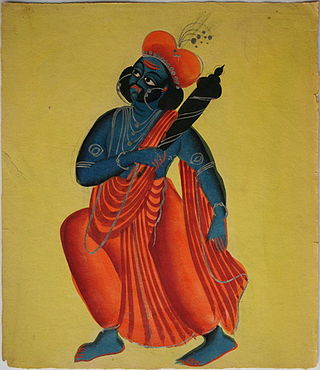
"Arise awake and stop not till the goal is reached." is a slogan popularized in the late 19th century by Indian Hindu monk Swami Vivekananda, who took inspiration in a sloka of Katha Upanishad. It was his message to the world to get out of their hypnotized state of mind. This shloka is the basis of the title of the book The Razor's Edge and the 1946 film and the 1984 film, and also of various music albums in the west by bands like AC/DC, Dave Holland, etc.

Swami Vivekananda, the nineteenth-century Indian Hindu monk, is considered one of the most influential people of modern India and Hinduism. Rabindranath Tagore suggested to study Vivekananda's works to learn about India. Indian independence activist Subhas Chandra Bose regarded Vivekananda as his spiritual teacher. Mahatma Gandhi said that after reading the works of Vivekananda, his love for his nation became a thousand-fold.
Meditation played a very important role in the life and teachings of Swami Vivekananda. He was interested in meditation from his childhood. His master Ramakrishna found him a dhyana - siddha . On 24 December 1892, Vivekananda reached Kanyakumari and meditated for three days on a large rock and took the resolution to dedicate his life to serve humanity. The event is known as the Kanyakumari resolve of 1892. He reportedly also meditated for a long time on the day of his death.
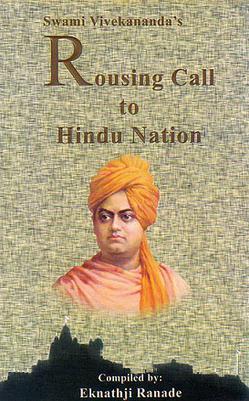
Rousing Call to Hindu Nation or Swami Vivekananda's Rousing Call to Hindu Nation (1963) is a compilation of Indian Hindu monk Swami Vivekananda's writings and speeches edited by Eknath Ranade the leader of Rashtriya Swayamsevak Sangh. The book was published in 1963, in the birth centenary of Vivekananda. Ranade dedicated the book as a "personal homage to the great patriot-saint" Swami Vivekananda.

The relationship between Ramakrishna and Vivekananda began in November 1881, when they met at the house of Surendra Nath Mitra. Ramakrishna asked Narendranath to sing. Impressed by his singing talent, he invited him to Dakshineswar. Narendra accepted the invitation, and the meeting proved to be a turning point in the life of Narendranath. Initially Narendra did not accept Ramakrishna as his master and found him to be a "mono maniac", but eventually he became one of the closest people in his life. Ramakrishna reportedly shaped the personality of Narendranath and prepared him to dedicate his life to serve humanity. After the death of Ramakrishna, Narendra and his other monastic disciples established their first monastery at Baranagar.

Vivekananda's prayer to Kali at Dakshineswar is an event which occurred in September 1884 when Swami Vivekananda, following the suggestion of Ramakrishna, went to the Kali temple of Dakshineswar with the intention to pray for financial welfare, but ultimately prayed for pure knowledge, devotion and renunciation. This event has been a subject of scholarly studies and is considered as a significant event in the life of Vivekananda, who initially revolted against idol-worship but now accepted and prayed before an idol of Kali. This incident added a new change to Narendra's devotion and knowledge.
In 1888, Swami Vivekananda left the monastery as a Parivrâjaka— the Hindu religious life of a wandering monk, "without fixed abode, without ties, independent and strangers wherever they go". His sole possessions were a kamandalu, staff and his two favourite books: the Bhagavad Gita and The Imitation of Christ. Narendra travelled extensively in India for five years, visiting centres of learning and acquainting himself with diverse religious traditions and social patterns. He developed sympathy for the suffering and poverty of the people, and resolved to uplift the nation. Living primarily on bhiksha (alms), Swami Vivekananda travelled on foot and by railway. During his travels he met, and stayed with Indians from all religions and walks of life: scholars, dewans, rajas, Hindus, Muslims, Christians, paraiyars and government officials.
Vishwanath Datta was a Bengali lawyer, philanthropist and novelist. He was the father of Swami Vivekananda, Mahendranath Dutta and Bhupendranath Dutta.
